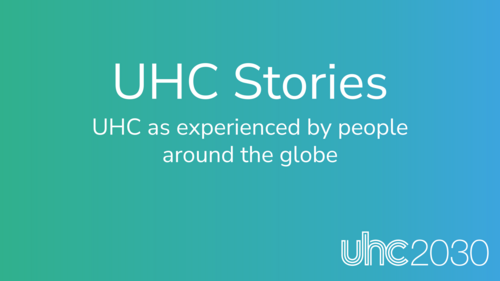UHC2030 hosted its annual UHC Day parliamentarian town hall to...
10 May 2022
As part of Universal Health Coverage (UHC) commitment monitoring, we want to tell the real stories of UHC as experienced by people across the globe. This story looks at how a UHC scheme positively affected wound care management in a Kenyan hospital.

I am a Kenyan nurse working for the government. I have a passion for wound care. I was excited and happy for our patients when the UHC scheme was launched in our hospital, The Jaramogi Oginga Odinga Teaching and Referral Hospital.
The hospital is located in the western region of Kenya. It serves more than ten counties in the western region of Kenya, with a population of more than 5 million. The hospital has an inpatient bed capacity of 503, with a bed occupancy of 94.8%, while 107 of these cases are surgical cases related to wounds.
On 8 January 2019, Universal Health Coverage (UHC) was launched at the hospital, which became a major boost for the county’s health care services. UHC is a scheme launched by the Government of Kenya and piloted in four counties out of forty-seven. It ensures that everyone everywhere can access health services where and when needed, without financial hardship. With the UHC scheme launched in our hospital, wound care management has greatly improved, as the difficult-to-heal wounds that need surgical intervention are now fully sponsored.
“With the UHC scheme launched in our hospital, wound care management has greatly improved.”
However, some challenges emerged with the UHC scheme launch, including an increased workload but a shortage of health care providers and adequate space to accommodate the large numbers of patients seeking health services. There is also a knowledge gap on the management of wounds, and a lack of a training programmes in the facility on this issue. There is a need to hire more health care providers, expand the surgical units, and develop training programs for the health care workers on surgical wound management.
Note: This story may have been edited for clarity and shortened for fit on the UHC2030 webpage.
Category: Civil society and communities
More UHC2030 News
A global health financing emergency threatens progress toward...
UHC2030 at HSR2024: Advancing equity and inclusion in health systems through civil society knowledge
UHC2030, in collaboration with the SUPPORT-SYSTEMS research...
